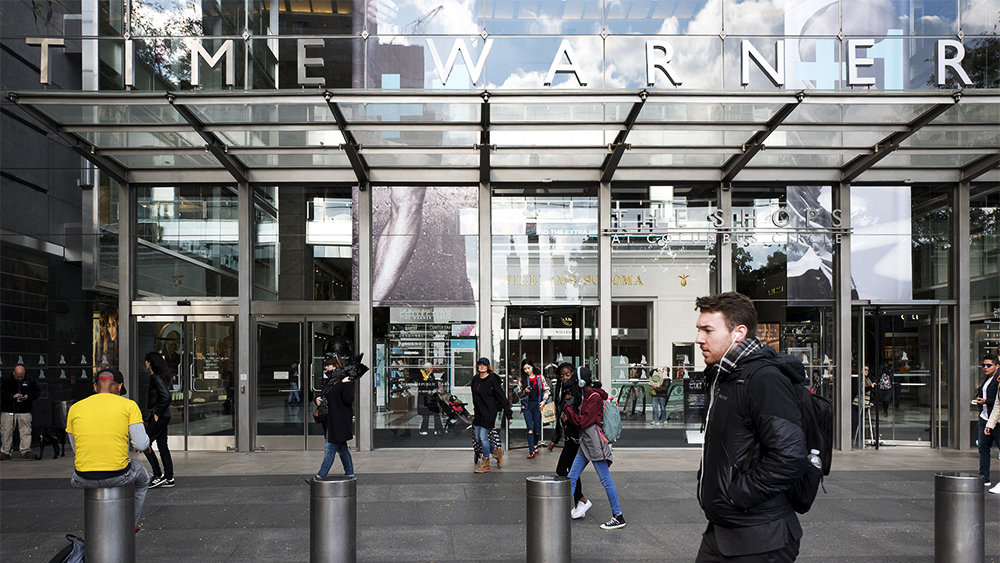AT&T-Time Warner Merger Decision Inspires Mixed Emotions in Hollywood
By Brent Lang
LOS ANGELES (Variety.com) – On Tuesday afternoon, there was only one media story that mattered to the entertainment business. Across Hollywood, the talk was almost exclusively about the pending federal court ruling on ’s $85 billion bid for Time Warner, the company behind Warner Bros., HBO, and CNN.
Work screeched to a halt Tuesday afternoon on Warner Bros.’s Burbank lot and in ’s sprawling mid-town Manhattan office complex as employees gathered around televisions, scrolled through Twitter, and kept checking their phones for updates.
There was a palpable sense of relief and even some scattered applause, insiders said, when word finally came that U.S. District Court Judge Richard Leon had upheld the merger. Employees on both coasts were largely relieved by the sweeping nature of Leon’s decision. The judge rejected the Justice Department’s lawsuit claiming that the marriage of the telecom giant and the entertainment company represented an anti-trust violation and imposed no conditions on the merger.
“We’ve been in a holding pattern for so long,” said one Time Warner employee. “At least now we have some clarity.”
AT&T presented the deal as a win for consumers, saying the merger means “we can begin to give consumers video entertainment that is more affordable, mobile, and innovative.” But most industry observers think the big winners will be corporate lawyers, bankers, and moguls, all of whom are poised to benefit from a coming wave of media consolidation.
“It’s not the summer of love,” said one studio executive. “It’s the summer of chaos.”
Comcast, emboldened by the judge’s rubber stamping of the AT&T/Time Warner deal, is expected to formally make an offer on Wednesday for most of Fox’s film and television assets. The cable giant hopes to play spoiler, potentially plucking Fox away from the Walt Disney Company, which has a deal to buy the bulk of the company. At the very least Comcast will drive the price for Fox above the $52.4 billion in stock that Disney is currently offering.
Many industry figures believe that the AT&T and Time Warner deal will have a domino effect, potentially putting companies like Lionsgate, MGM, or Sony in play as bigger companies hope to capitalize on a more laissez-faire regulatory climate.
“It’s off to the races,” said one entertainment industry executive. “Whether you’re Apple or Amazon or someone with a big wad of cash, this gives you the greenlight to go shopping.”
That’s a good thing for tech giants looking to buy content makers, but it’s a bad thing for job security. There’s already a lot of uncertainty on the Fox lot, where executives were busy mapping out their post-Disney plans — Some were thrilled to have received the silent nod they’d be part of the Magic Kingdom, others were aggrieved to have realized that Bob Iger’s team had little need for them, and a more entrepreneurial group were already mapping out new landing spots. The entrance of Comcast complicates that kind of long-term strategizing.
Those concerns extend beyond the Fox rank-and-file.
“There have been lots of questions by talent who wonder should I make a movie or a show there?” said the industry executive. “They don’t know who is going to be in control.”
There are a few contrarians who believe it’s hyperbolic to think the AT&T and Time Warner deal will open the floodgates on merger activity.
“I don’t buy the theory this is going to change the world,” said Richard Gelfond, CEO of IMAX. “Some things that were in the works for awhile will happen now, but I don’t think there’s going to be dozens of transactions.”
Entertainment industry labor unions voiced anger over the court’s decision. The Writers Guild of America, East, for instance, released a blistering statement linking the AT&T and Time Warner decision with recent efforts to weaken net neutrality protections.
“Never before has so much programming been under the domination of so few massive media and technology corporations,” the guild’s statement reads. “At a time when the country demands, and needs, the broadest possible set of views and stories and voices, we have handed over the keys to the media kingdom to giants whose sole motivation is to maximize their short-term investment return, not to inform or enlighten or entertain. Monopolies and oligopolies are bad for the economy in general, and for people who care about compelling stories and insightful reporting, in particular.”
The Writers Guild of America, West echoed its cousin to the East, noting that it had supported the Justice Department’s effort to squelch the AT&T-Time Warner union.
“A combined AT&T-Time Warner, like so many mergers before it, will lead to higher prices and fewer choices,” the group said in a statement. “Further, it will pave the way for more anti-competitive mega-mergers, like the forthcoming Comcast-NBCU-Fox tie-up.”
IMAX’s Gelfond disagrees. He argues the Justice Department was using an overly broad definition of monopolies
“The media landscape is changing so rapidly that it would have messed up the business if this had been allowed to go through,” said Gelfond. “Today’s decision is good for the industry, and it’s good for the country.”

